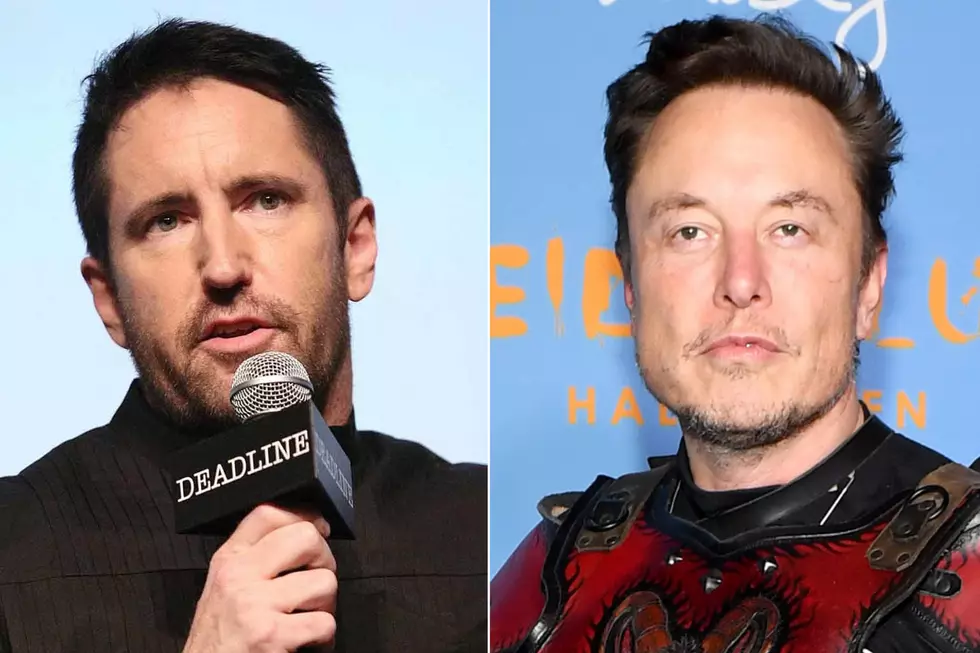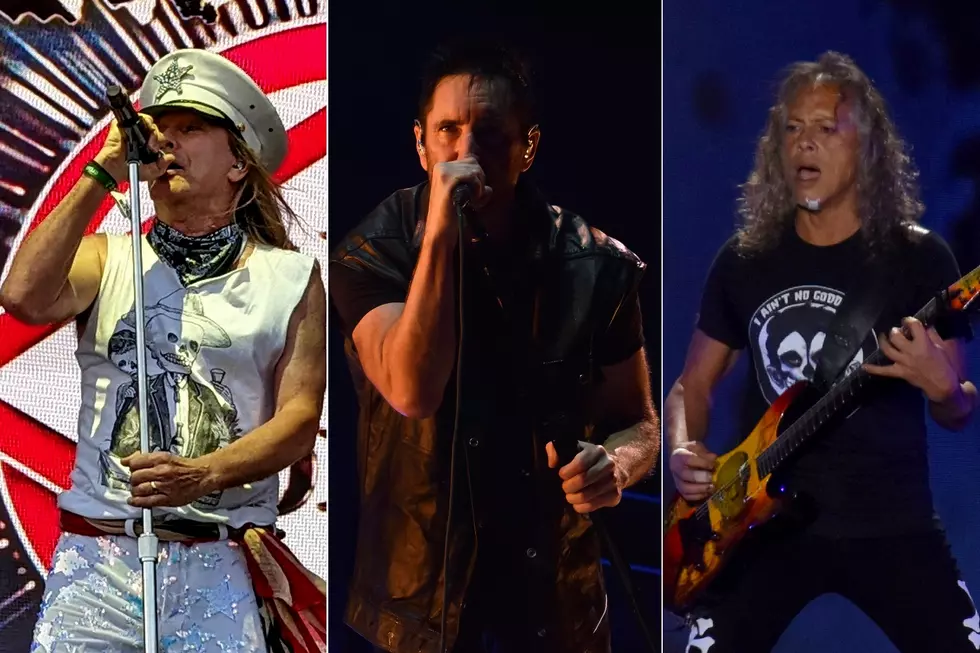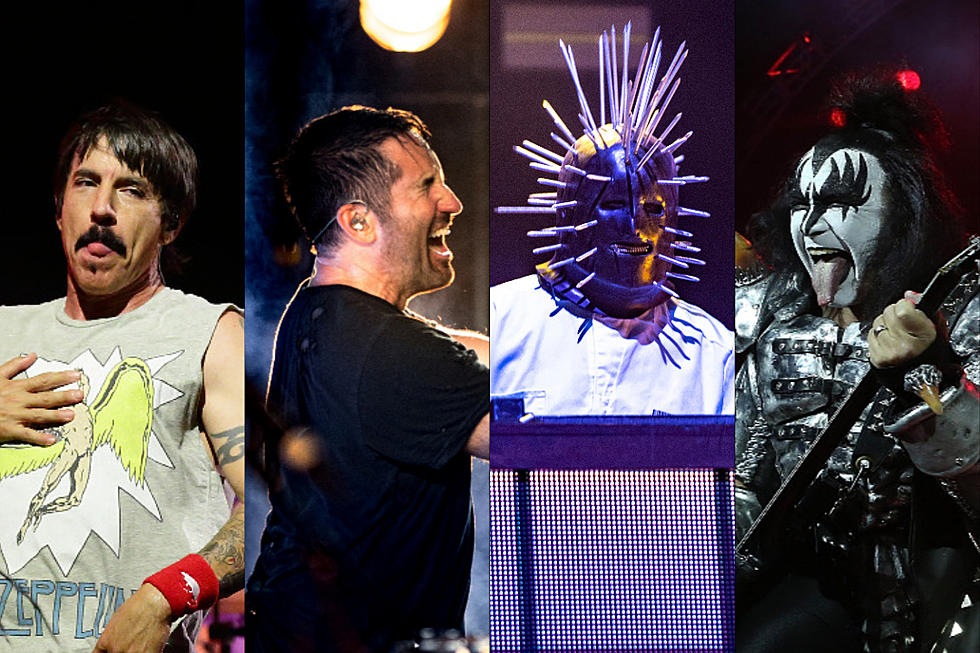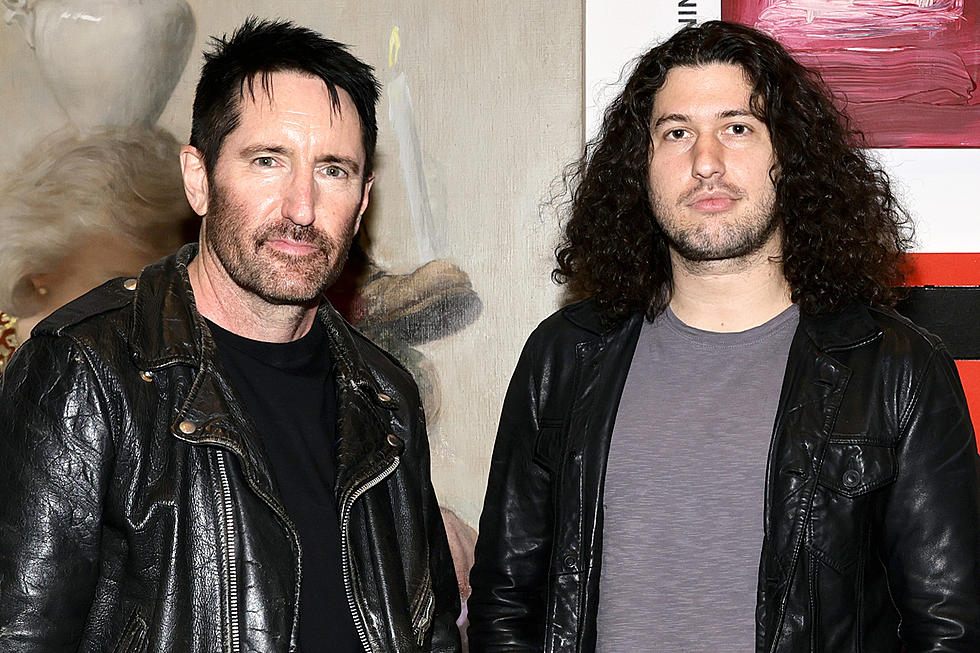
Trent Reznor: David Bowie ‘Helped Me Figure Out Who I Was’
Nine Inch Nails leader Trent Reznor reflects on the personal legacy David Bowie holds in his life in a new essay, writing the iconic English musician “helped me relate to myself and figure out who I was.”
Reznor’s tribute to Bowie will appear in the forthcoming issue of Rolling Stone, which is dedicated to the late singer. In his essay, the NIN frontman recalls listening to Bowie’s albums for the first time and the impact they had on his life and creativity. “He was a tremendous inspiration in terms of what was possible,” Reznor writes, “what the role of an entertainer could be, that there are no rules.”
Reznor also details collaborating with Bowie during their 1995 Outside Tour, how he refused to allow Bowie to open for his band and the late singer's determination in not catering to fans' expectations:
At one of our first meetings, in rehearsals, we were talking about how the tour was going to go. I was faced with a strange predicament: At that moment in time, we’d sold more tickets than he did in North America. And there’s no way on earth David Bowie is going to open for me. And on top of that, he said, ‘You know, I’m not going to play what anybody wants me to play. I just finished a strange new album. And we’re going to play some select cuts from a lot of Berlin trilogy–type things, and the new album. That’s not what people are going to want to see, but that’s what I need to do. And you guys are going to blow us away every night.’ I remember thinking, ‘Wow. I’m witnessing firsthand the fearlessness that I’ve read about…
… One of the greatest moments of my life was standing onstage next to David Bowie while he sang ‘Hurt’ with me. I was outside of myself, thinking, ‘I’m standing onstage next to the most important influence I’ve ever had, and he’s singing a song I wrote in my bedroom.’ It was just an awesome moment.”
Reznor notes he was struggling with his sobriety at that time, and Bowie played an instrumental role in helping him recover and get clean:
There were a number of times where the two of us were alone, and he said some things that weren’t scolding, but pieces of wisdom that stuck with me: ‘You know, there is a better way here, and it doesn’t have to end in despair or in death, in the bottom.’
A full year later, I hit bottom. Once I got clean, I felt a tremendous amount of shame, of my actions and missed opportunities and the damage that I’ve caused in the past. And I thought back to the time when we were together a lot, and I wonder what that could have been like if I was at 100 percent. The ‘I’m Afraid of Americans’ falls into that category of me at my worst — out of my mind and ashamed of who I was at that time. So when I see that, I have mixed feelings — grateful to be involved, and flattered to be a part of it, but disgusted at myself, at who I was at that time, and wishing I had been 100 percent me. And it nagged me.
A few years later, Bowie came through L.A. I’d been sober for a fair amount of time. I wanted to thank him in the way that he helped me. And I reluctantly went backstage, feeling weird and ashamed, like, ‘Hey, I’m the guy that puked on the rug.’ And again, I was met with warmth, and grace, and love. And I started to say, ‘Hey listen, I’ve been clean for …’ I don’t even think I finished the sentence; I got a big hug. And he said, ‘I knew. I knew you’d do that. I knew you’d come out of that.’ I have goosebumps right now just thinking about it. It was another very important moment in my life.
Read Reznor's entire eulogy to Bowie right here.
Worst to First: Every David Bowie Album Ranked
More From Classic Rock Q107










